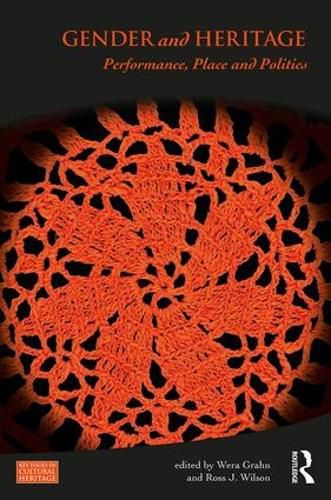Readings Newsletter
Become a Readings Member to make your shopping experience even easier.
Sign in or sign up for free!
You’re not far away from qualifying for FREE standard shipping within Australia
You’ve qualified for FREE standard shipping within Australia
The cart is loading…






Gender and Heritage brings together a group of international scholars to examine the performance, place and politics of gender within heritage. Through a series of case studies, models and assessments, the significance of understanding and working with concepts of gender is demonstrated as a dynamic and reforming agenda. Demonstrating that gender has become an increasingly important area for heritage scholarship, the collection argues that it should also be recognised as a central structuring device within society and the location where a critical heritage studies can emerge.
Drawing on contributions from around the world, this edited collection provides a range of innovative approaches to using gender as a mode of enquiry. From the politics of museum displays, the exploration of pedagogy, the role of local initiatives and the legal frameworks that structure representation, the volume’s diversity and objectives represent a challenge for students, academics and professionals to rethink gender. Rather than featuring gender as an addition to wider discussions of heritage, this volume makes gender the focus of concern as a means of building a new agenda within the field.
This volume, which addresses how we engage with gender and heritage in both practice and theory, is essential reading for scholars at all levels and should also serve as a useful guide for practitioners.
$9.00 standard shipping within Australia
FREE standard shipping within Australia for orders over $100.00
Express & International shipping calculated at checkout
Gender and Heritage brings together a group of international scholars to examine the performance, place and politics of gender within heritage. Through a series of case studies, models and assessments, the significance of understanding and working with concepts of gender is demonstrated as a dynamic and reforming agenda. Demonstrating that gender has become an increasingly important area for heritage scholarship, the collection argues that it should also be recognised as a central structuring device within society and the location where a critical heritage studies can emerge.
Drawing on contributions from around the world, this edited collection provides a range of innovative approaches to using gender as a mode of enquiry. From the politics of museum displays, the exploration of pedagogy, the role of local initiatives and the legal frameworks that structure representation, the volume’s diversity and objectives represent a challenge for students, academics and professionals to rethink gender. Rather than featuring gender as an addition to wider discussions of heritage, this volume makes gender the focus of concern as a means of building a new agenda within the field.
This volume, which addresses how we engage with gender and heritage in both practice and theory, is essential reading for scholars at all levels and should also serve as a useful guide for practitioners.